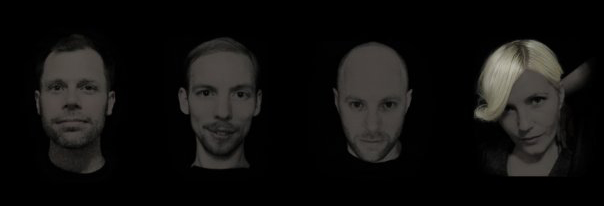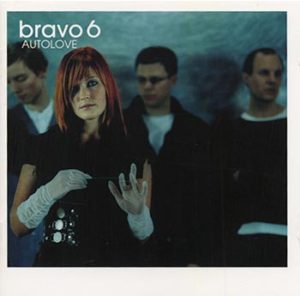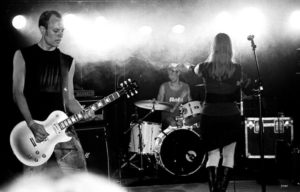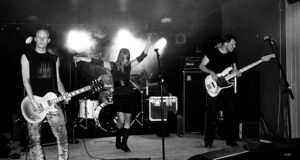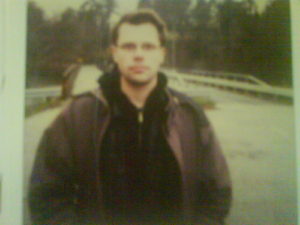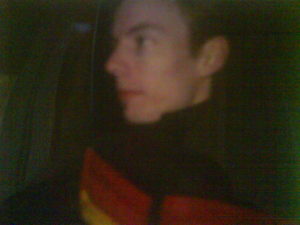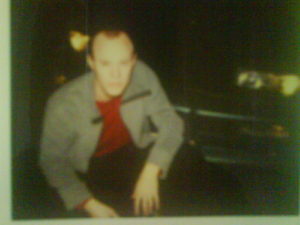One thing has always been crucial for Vesperville – never to let the circumstances get in the way of the completion of the vision of the band’s songs. That may result in putting a microphone in front of a TV set with a Spaghetti Western running on it, or sleeping in shifts on the studio floor whilst mixing, or scrapping the hot shot producer’s versions and redo them themselves again in the “right” way, or using household objects like clocks, vacuum cleaners, saucepans filled with water to create the desired sounds. Always searching for ways to make the absolute most of the (at least in the earlier days) modest recording equipment.
Always, because of the joy and fun involved, striving for music making through recording, experimenting and playing together in different ways, the band started out in the late nineties as Endive. At first, flirting with light pop and bossanova, trying out the constellation, writing and recording at home, performing at smaller venues for the initiated crowd. One time at summer solstice fest for five persons and a goat. It didn’t take long though until the band was noticed by publishers and the main song writers, Daniel and Malin, struck a publishing deal with MCA, nowadays part of the Universal family. When the music turned a little bit more programmed, dark and synth-orientated Endive decided to change name into Bravo 6. This was still in the period before hard disk recording, so the band had to really go to extremes to process sounds, looping in and out of their mixing console through the few effect modules in possession. In -98 they made a expensive song demo at Cosmos Studios in central Stockholm that the publisher hoped would result in tracks ready to release. The three tracks that were finished actually were quite different in styles, coming from different eras of the bands music and did not end up released. The song that the band really felt for and wanted to work with was of course the most recent one pointing in a newer direction, but the publisher chose to finish other tracks. Maybe not a strange choice seen in their perspective and a safer one, but it kind of missed the mark.
In -99 Bravo 6 signed a record deal with Sony and got the chance to practically live in a big studio. The company had moved their offices from outside of Stockholm to the inner city, leaving only their own record studio behind in the basement of the building they had used. Now, considered in an off place, the studio were seldom used and the band were handed the keys. What a dream! Large analog mixing desk, 24-track tape recorder, different recording rooms and Pro-Tools at their disposal. In this studio Bravo 6 thrived, learning how to create their sound with no one else involved. When a full length album were to be made SONY asked renowned producer Peter Kvint to supervise the production. Two weeks were spent in Romarö studios, complete with private chef and all, after that some time with post-production, string quartet recordings and then off to mixing the first six tracks at legendary Decibel Studios. All good? No – in the end only one mix from the Decibel sessions ended up on the album. The group scrapped many of the productions and redid the songs in the Sony studio together with a couple of new tunes that had been given the chance to be written and evolve during the passing months.
The album spawned three singles with videos, the first (“You lose yourself”) being the main track for Swedish fright-film “Det Okända” (“The Unknown”). The band performed in front of larger audiences at Kungsträdgården, Göteborgskalaset and Skansen as well as for selected branch VIP:s in connection with the MTV Music Awards when it was held in Stockholm. The band also ended up on a strange tour through the country together with a roller skater tournament, arranged by the record company. Totally not the right audience for their music, but hey, that’s life in the corporate world.
No, the album did not recoup the costs, and like many other bands the interest from their record company withered away faster than anyone can say “royalties?”.
That did not in any way dampen the esteem of the band, now changing name to Vesperville, making a new start with new music. Still being able to hang around in Sony’s studio as it were moved into Stockholm city the members bursted out new songs. One thing was clear, the next album were to be made by themselves with no one else interfering with their ideas.
On “My Pagan Past”, for better or for worse, Vesperville did everything except the final mastering. Recording, mixing, graphic design & layout and song writing of course – all were done by the four members. The album, released on streaming platforms as well as in physical format, was a sum up of the past seven years life experiences and took about two years to complete. An animated video was made to the lead track, “Mind of a model”, which still was only one of the many flavours of that album, with songs ranging from almost only programmed music, to close to an unplugged feeling and, which was a first for the band, the incorporation of trumpet and saxophone.
The next release was to be the ominous pop track “Ten”, which welcomed back both live strings as well as the first real remix of a Vesperville song, produced by brother remix duo SKLD. This suggestive track was released together with a video, directed and edited by the band themselves, shot mostly at the top of a skiing slope outside Stockholm. Not that there was any snow around, it was filmed on a very windy November’s day. It did though include emergency flares, which always is a fun thing. Soon after that a second single, the very toned down “War on myself”, was released.
Then followed “VAT 1-4”, 41 previously unreleased and now remastered tracks from Vesperville’s entire career, to this date spanning over more than 20 years. It captivates all the joy of using creativity to the most, the fun in exploring and discovering more than you expected, musically, and the variations of the band’s moods through the years. From the band’s self-invented style Drum’n’bossa and early recordings under meager conditions to full on demo productions complete with every fx intended for a final release version.
